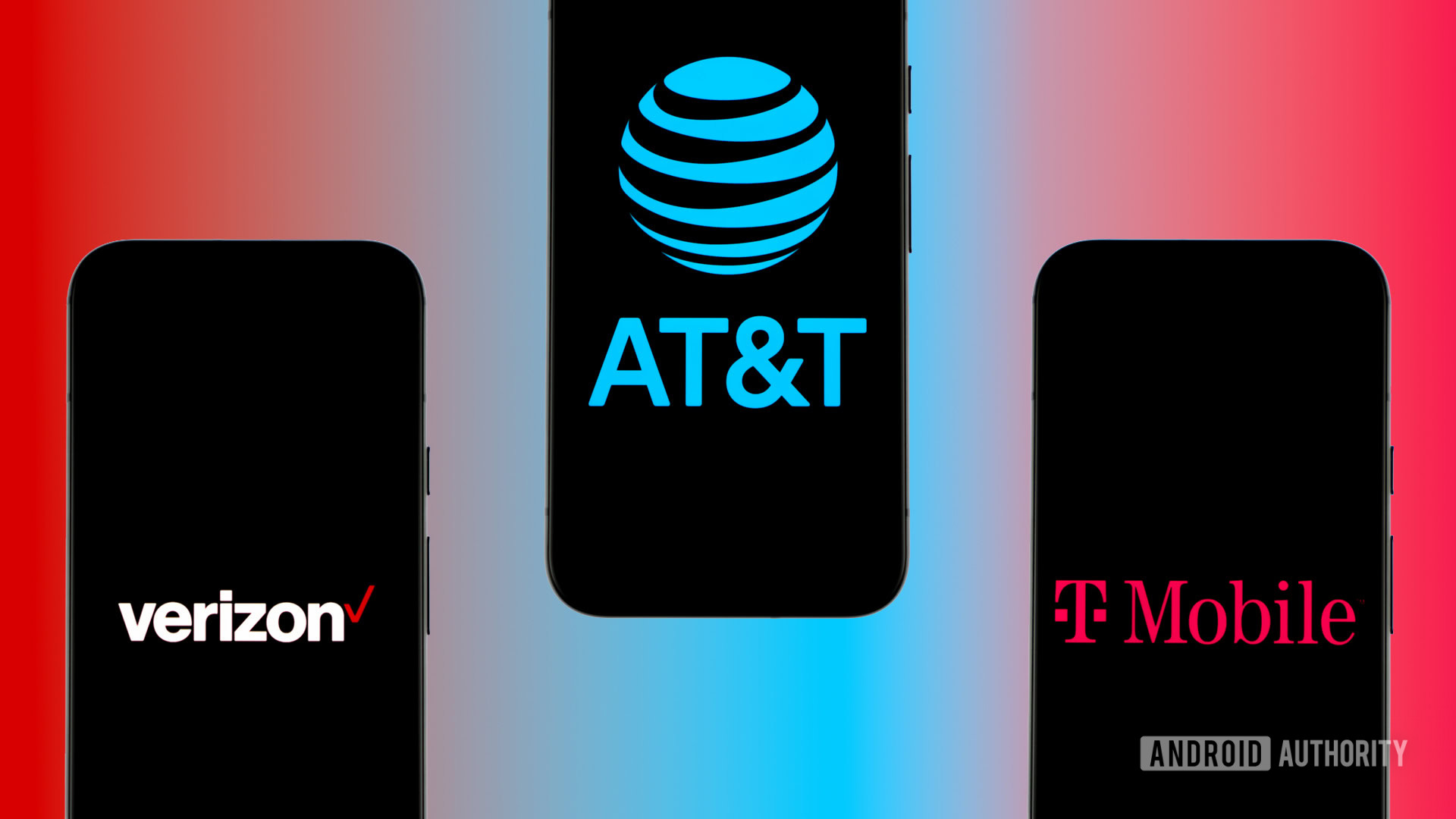Affiliate links on Android Authority may earn us a commission. Learn more.
AT&T and Verizon call foul on SpaceX and T-Mobile’s satellite service plans
Published onAugust 16, 2024

- AT&T and Verizon are requesting the FCC to block SpaceX and T-Mobile’s satellite-to-mobile service due to concerns about interference with existing mobile networks.
- Both companies argue that SpaceX’s proposed increase in satellite emission limits could significantly degrade terrestrial mobile services.
- SpaceX and T-Mobile previously defended their plan, asserting it won’t cause harm and accused competitors of trying to delay their service.
Major telecom providers AT&T and Verizon are throwing their weight around to raise concerns over SpaceX’s ambitious plan to deliver mobile service with T-Mobile. The companies contend that SpaceX’s approach could degrade existing terrestrial mobile networks and disrupt services for millions of Americans.
First reported by Ars Technica, both AT&T and Verizon filed formal petitions with the Federal Communications Commission (FCC), urging the agency to deny SpaceX’s request for a waiver on specific emission limits. Their filings echo concerns already voiced by satellite companies EchoStar and Omnispace.
Concerns about network disruption
The T-Mobile and SpaceX partnership, announced in 2022, aims to eliminate cellular dead zones by allowing phones to connect to Starlink satellites directly. However, AT&T claims that SpaceX’s proposal to significantly increase allowable power levels for out-of-band emissions would cause “unacceptable harmful interference” to its existing networks. The company even provided a technical analysis suggesting an “18% decrease in network performance” in one of its key markets.
Verizon’s opposition is based on similar grounds, stating that SpaceX’s plan could cause harmful interference and negatively impact wireless phone performance. The company further argues that the proposed safety margins are inadequate and fail to protect terrestrial devices from potential interference.
Interestingly, both Verizon and AT&T have their own satellite-to-phone services in the works with AST SpaceMobile, although those aren’t expected to launch until 2025. The T-Mobile and SpaceX service, on the other hand, is slated for a fall launch, pending any delays caused by these complaints.
It’s not as simple as it sounds
What’s intriguing is that SpaceX seems to have anticipated this pushback. In a recent meeting between SpaceX and T-Mobile representatives with the FCC staff, SpaceX expressed confidence that its plan would not harm other wireless operations and predicted that competitors would continue to make “misleading claims” and “draconian demands” to stall the project and protect their own interests.
T-Mobile also voiced its support for the SpaceX plan during the meeting, emphasizing its commitment to ensuring that out-of-band emissions do not cause harmful interference. The company stated its confidence that the proposed operations would not negatively impact adjacent-band terrestrial operations, including its own.
The FCC has set August 22 and August 29 as the deadlines for responses and replies to responses in this matter, respectively.